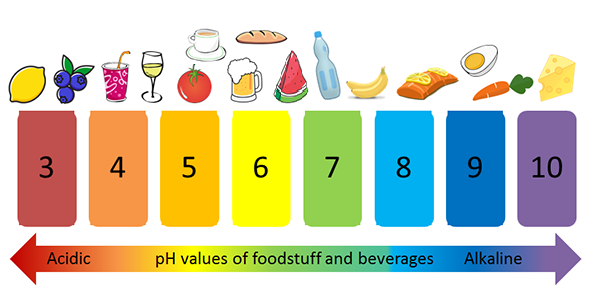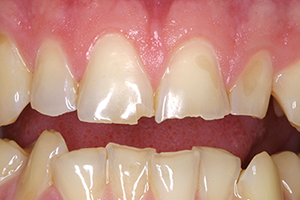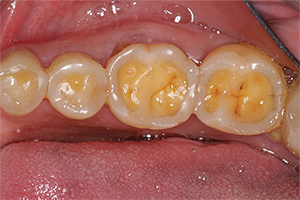Tooth erosion
Tooth erosion is chemical wear of the teeth where tooth enamel is dissolved by acids. Tooth erosion is caused particularly by acidic drinks and foods as well as by gastric fluid travelling upwards and entering the mouth due to reflux or eating disorders. Causes are often diverse and often associated with lifestyle, such as irregular eating patterns or consumption of acidic drinks. Grinding your teeth also increases the erosion of softened tooth enamel.
The image below illustrates the pH values of different foods. Most juices, soft drinks, sports and energy drinks, flavoured still and sparkling waters, and alcoholic beverages are bad for your teeth. Foods that may cause tooth erosion include vinegar-containing canned foods, fruit-flavoured sweets, most fruits and berries, vinegar-containing salad dressings and sauces, such as ketchup.

Are you familiar with the pH values of different foods?
Enter a food (such as banana) in the search field to find out its pH.
This is how erosion shows on your teeth
In the mouth, tooth erosion can be seen and felt as changes to the shininess of the enamel, chipping and cracking of the tips of the front teeth, dentine exposure, tooth sensitivity and sensitivity to pain and, as the erosion progresses, malocclusion.


Acidic foods and drinks should be consumed with meals, and always in moderation (no more than 3 to 4 times a day). Remember that even healthy products can harm your teeth if you keep eating them throughout the day. Non-essential acidic products, such as energy drinks, soft drinks and juices, should be reserved for special occasions. When eating acidic foods, it’s a good idea to eat something containing calcium to neutralize the acid.
In terms of treatment, the key is to stop tooth erosion as early as possible. Ask your dentist whether there are signs of erosion in your teeth if this is not mentioned during your appointment.
